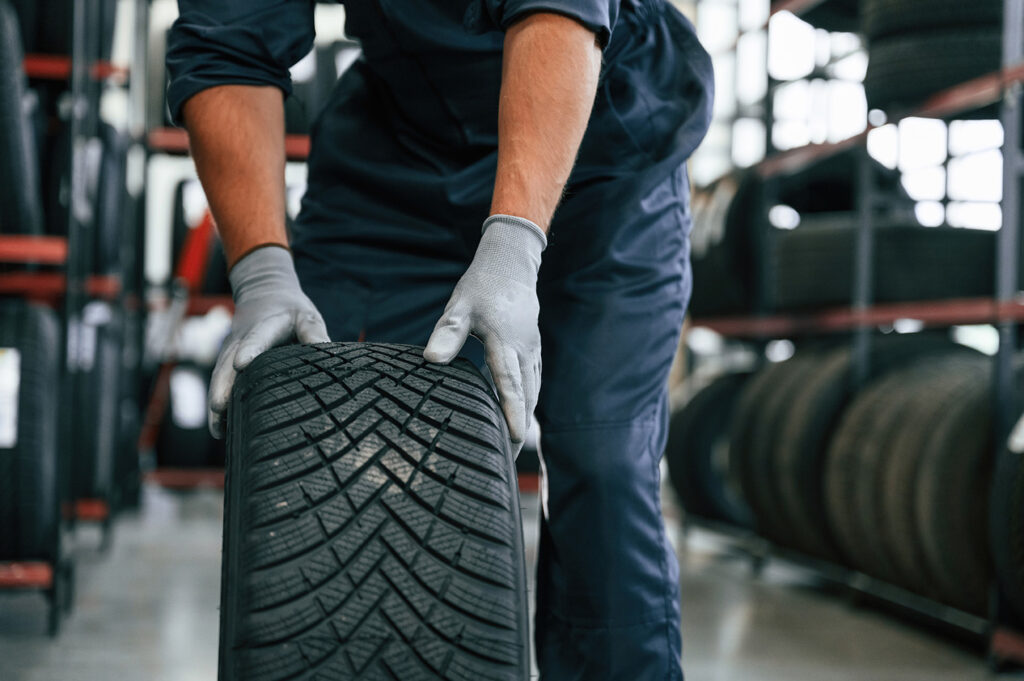Question
I was discussing the need to prepare my vehicles and drivers for winter months, as well as how we need to change driving style for the winter. What should I prioritise to make sure my fleet remains safe?
Answer
Winter can bring all sorts of challenges to driving, from slippery roads to darker days. As we head into the colder months, it’s vital to ensure both your vehicles and drivers are ready to handle the conditions. In this guide, we’ll walk you through the key steps to prepare for winter driving, so you can keep your fleet safe and your business running smoothly.
Why Preparing for Winter Is Important
Winter weather increases risks for drivers, with reduced visibility, slippery roads, and more unpredictable conditions. Preparing ahead of time ensures your drivers are equipped to handle these challenges, and your vehicles are ready for the demands of colder weather. Let’s dive into how to prepare both vehicles and drivers for a safe winter season (Government advice) .
Prepare Your Vehicles for Winter
a) Check Your Tyres
Tyres are your first line of defence against winter roads. Make sure you:
- Check tread depth: The legal minimum tread depth is 1.6mm, but for winter, it’s best to have at least 3mm for better grip.
- Consider winter tyres: If your fleet operates in areas prone to snow or ice, fitting winter tyres can significantly improve safety.
- Check tyre pressure regularly: Cold weather can lower tyre pressure, which reduces grip and can lead to blowouts.
b) Battery and Electrical System
Cold weather can put extra strain on your vehicle’s battery and electrical system.
- Check the battery’s health: Batteries tend to fail more often in winter, so ensure they are in good condition.
- Inspect lights and electrics: With shorter daylight hours, your lights will be in use more. Make sure all lights are functioning, including headlights, brake lights, and indicators.
c) Fluids and Wipers
In winter, your vehicle’s fluids and wipers need extra attention.
- Top up anti-freeze: Ensure the cooling system has enough antifreeze to prevent freezing.
- Check windscreen washer fluid: Use winter-grade washer fluid to prevent it from freezing.
- Inspect wipers: Make sure the wipers are in good condition and replace them if they’re worn. Winter wipers are also an option, designed to handle snow and ice better.
d) Brakes
Winter weather increases stopping distances, so brakes must be in top condition.
- Get brakes checked: Make sure pads, discs, and the overall braking system are in good condition.
- Consider brake fluid: Brake fluid should be checked and replaced regularly to maintain performance in cold weather.
Prepare Your Drivers for Winter Conditions
a) Adjust Driving Style
Driving in winter is very different from driving in summer. Here are some key adjustments your drivers should make:
- Plan ahead: Allow extra time for journeys during darker mornings and evenings.
- Watch out for glare: The lower sun in winter can shine directly through your windscreen, especially when the roads are wet. Keep sunglasses handy to reduce glare.
- Drive slower: Wet and icy roads require a slower speed to avoid losing control.
- Avoid puddles and floods: Heavier rainstorms can cause localised flooding, especially when drainage is blocked by leaves. Avoid large puddles, as they can cause your vehicle to swerve or aquaplane.
b) Be Aware of Fog and Reduced Visibility
Winter often brings fog, especially during early mornings and evenings. Make sure drivers:
- Use headlights properly: Automatic lights may not always switch on when visibility drops. Remind drivers to manually turn on headlights in poor visibility.
- Consider other drivers: When the sun is behind you, it’s in the eyes of oncoming drivers. Ensure you’re seen by using your headlights or fog lights when necessary.
Regular Maintenance and Fleet Checks
Ongoing maintenance is essential during winter. Make sure to schedule regular vehicle checks to ensure everything is running smoothly. It’s better to catch problems early before they cause a breakdown.
a) Winter-Specific Servicing
Consider giving your vehicles a winter service, which might include:
- Checking the heating and defrosting systems.
- Ensuring door seals are intact to prevent moisture from freezing on the inside of windows.
b) Breakdown Preparedness
Equip vehicles with emergency kits, including:
- Blankets
- Ice scrapers
- De-icer
- High-visibility jackets
- First-aid kits
These can help in case of breakdowns or delays caused by severe weather.
FAQs About Preparing your Vehicles and Drivers for Winter
What should I prioritise when driving in winter?
You should prioritise adjusting your speed, allowing extra time for your journey, and ensuring you have good visibility. Plan for glare from the low winter sun, and watch out for wet, icy, or flooded roads.
How can I prepare my fleet for winter?
Start by checking tyres, brakes, and batteries. Ensure all fluids are topped up, including anti-freeze and washer fluid. Don’t forget to equip each vehicle with emergency supplies.
Do I need winter tyres for my fleet?
If your fleet operates in areas prone to snow or ice, winter tyres are highly recommended. They provide better grip and improve safety in cold, wet, or icy conditions.
How often should I check my vehicles in winter?
It’s a good idea to check vehicles more frequently in winter. Tyres, brakes, lights, and wipers should be inspected regularly to ensure everything is functioning properly.
FAQs About Fleet Service GB
What services does Fleet Service GB offer for winter preparation?
Fleet Service GB offers comprehensive FSGB Maintenance Management solutions, including regular vehicle maintenance, tyre checks, and winter servicing options to keep your fleet running safely in winter.
Can Fleet Service GB help with emergency breakdowns?
Yes, we offer 24/7 breakdown support, ensuring your drivers are back on the road as quickly as possible, even in winter weather conditions.
Does Fleet Service GB provide fleet driver training?
We offer Advanced Driver Training as part of our FSGB Driver Management solution, which can be tailored to include winter driving skills and techniques to help your drivers stay safe on the roads.
By following these tips, your fleet will be better prepared for winter driving, keeping your drivers safe and your vehicles in top condition throughout the colder months.



